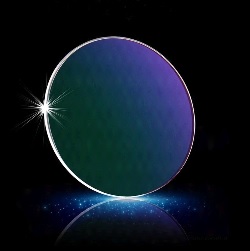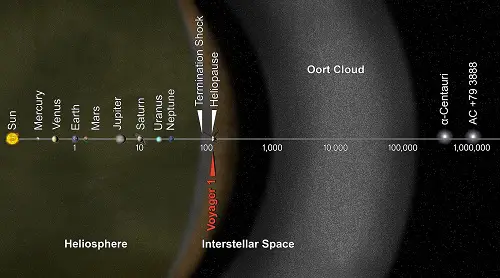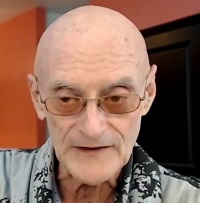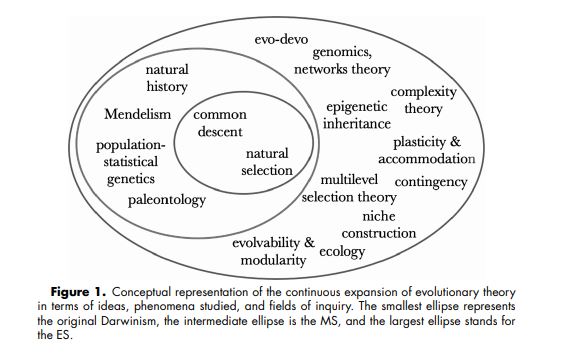TRANSLATE THIS ARTICLE
Integral World: Exploring Theories of Everything
An independent forum for a critical discussion of the integral philosophy of Ken Wilber
 David Christopher Lane David Christopher Lane, Ph.D.
Professor of Philosophy, Mt. San Antonio College Lecturer in Religious Studies, California State University, Long Beach Author of Exposing Cults: When the Skeptical Mind Confronts the Mystical (New York and London: Garland Publishers, 1994) and The Radhasoami Tradition: A Critical History of Guru Succession (New York and London: Garland Publishers, 1992). SEE MORE ESSAYS WRITTEN BY DAVID LANE
Cosmic Myopia
A Critique of Ken Wilber's Anthropocentric
Understanding of the Universe
David Lane
Question: What do Donald Trump and Ken Wilber have in common?
Answer: They both have very thin skin when it comes to criticism.
— Anonymous Poster
Wilber appears to have a pattern of cutting off the most pregnant of criticisms before allowing them to give birth.
As much as I like Ken Wilber personally and as much as I have learned from his many writings (particularly his theoretic constructs such as pre/trans fallacy, legitimacy/authenticity, etc.) I am truly baffled by his pettiness when responding to critics. Instead of welcoming skeptical feedback, particularly in areas where his so-called expertise is questionable, Wilber has consistently resorted to either ad hominem attacks (see for examples, “I mean Meyerhoff is adolescent postmodernism 101 with an attitude” to “every punk with a pistol comes gun-slinging for your ass”) or to unnecessary self-praise (such as “'Folks, give me a break on this one. I have a Master's degree in biochemistry, and a Ph.D. minus thesis in biochemistry and biophysics, with specialization in the mechanism of the visual process. I did my thesis on the photoisomerization of rhodopsin in bovine rod outer segments.”).

Sorry, Ken, but claiming to have a “Ph.D. minus a thesis” is akin to saying I have a “Bachelor of Arts but never finished taking enough classes to graduate.” Put that on a resume and one may have trouble getting a job interview.
The most pointed criticism that has been leveled at Ken Wilber over the past thirteen years centers on how he presents current evolutionary thinking in the biological sciences. Frank Visser has been at the forefront of demonstrating where, when, how, and why Wilber is mistaken about his views on the far-reaching implications of natural selection, sexual selection, genetic drift, epigenesis, etc., in explaining the development of complex life forms.[1]
What I find most egregious is how often Ken Wilber will inaccurately portray the most fundamental features of evolutionary thinking which prima facie upends his Eros driven teleology point by point. Instead of really tackling the hard issues (and dealing seriously with the many objections that have been raised by Visser and others), he claims (without supporting evidences) that, “Publicly, virtually all scientists subscribe to neo-Darwinian theory. Privately, real scientists—that is, those of us with graduate degrees in science who have professionally practiced it—don't believe hardly any of its crucial tenets.” Wilber never provides us with the necessary evidential support (e.g., how about a list of names?) for his exaggerated claim that “real” scientists don't buy neo-Darwinism.
Notice how Wilber qualifies “real” scientists as those with graduate degrees, forgetting in the process T.H. Huxley's famous essay, “We are all scientists.” As Huxley lucidly explains,
“The method of scientific investigation is nothing but the expression of the necessary mode of working of the human mind. It is simply the mode at which all phenomena are reasoned about, rendered precise and exact. There is no more difference, between the mental operations of a man of science and those of an ordinary person, than there is between the operations and methods of a baker or of a butcher weighing out his goods in common scales, and the operations of a chemist in performing a difficult and complex analysis by means of his balance and finely graduated weights. It is not that the action of the scales in the one case, and the balance in the other, differ in the principles of their construction or manner of working; but the beam of one is set on an infinitely finer axis than the other, and of course turns by the addition of a much smaller weight.
You will understand this better, perhaps, if I give you some familiar example. You have all heard it repeated, I dare say, that men of science work by means of induction and deduction, and that by the help of these operations, they, in a sort of sense, wring from Nature certain other things, which are called natural laws, and causes, and that out of these, by some cunning skill of their own, they build up hypotheses and theories. And it is imagined by many that the operations of the common mind can be by no means compared with these processes, and that they have to be acquired by a sort of special apprenticeship to the craft. To hear all these large words, you would think that the mind of a man of science must be constituted differently from that of his fellow men; but if you will not be frightened by terms, you will discover that you are quite wrong, and that all these terrible apparatuses are being used by yourselves every day and every hour of your lives.”
Despite Wilber's silly graduate degrees rant, the key to being scientific in any endeavor (credentialed or not) is to be able to test one's claims in a real world and see how well they hold up under critical scrutiny. Science is open to all, but one must allow each and every hypothesis to be thoroughly tested and vetted. Thus, to be “scientific” is to welcome doubt, to welcome skepticism, and to welcome challenges. But one must also be willing to engage those who question your proposed edifices. In this regard, one may wonder if Wilber is the “real” scientist he pretends to be.
A quote attributed to Winston Churchill is instructive here, particularly as it relates to Wilberian evolutionary-creationist theory: “Criticism may not be agreeable, but it is necessary. It fulfils the same function as pain in the human body. It calls attention to an unhealthy state of things.”
Simply put, there is a lot of “pain” that needs to be addressed in the Integral universe.
Wilber appears to have a pattern of cutting off the most pregnant of criticisms before allowing them to give birth, lest it upends his own cosmological schema. But in so doing he contradicts his previous claims that his Eros theory dovetails with modern science when he writes,
“One of the most boring criticisms I have received over the years is that my theory doesn't fit the modern theory of evolution. And that's right! The modern theory of evolution is catastrophically incomplete!”
But it isn't “boring” criticism if the Integral model you are championing in every book “doesn't' fit the modern theory of evolution.” In fact, it is the complete opposite since it is a clarion call for Wilber and his associates to up their game and develop a scientifically rigorous protocol that shows precisely where our current evolutionary studies fail.[4]
Has Wilber really put in the hard work to do that? Nope. Rather, he indulges in sloppy inaccuracies which give one pause about the seriousness of his endeavor. Praising Michael Behe's book, Darwin's Black Box, and not detailing the many defects of that work which has been resoundingly criticized by those most conversant in the field illustrates Wilber's questionable Eros-filled agenda.
In reading over Ken Wilber's entire oeuvre over the past forty years, it is very clear to me that despite his claims to the contrary (cherry picking this or that scientist as an authority figure) he refuses to take Darwin's and Wallace's theory of evolution seriously enough to refute its greatest strengths, which is that amazing complexity can arise without invoking a divine or purposive force inherent in the universe.
Indeed, Wilber's notion of a universe “winding up” suffers from a severe case of anthropocentrism. We tend to be narcissistically myopic when looking out towards the cosmos and believing ourselves to be the reason for its existence or that the emergence of consciousness at higher and higher forms is why the Big Bang happened in the first place.
If we take a wider-angle view of just our solar system and see how truly large it is (going from our sun to the Oort cloud), we realize that we are but an infinitesimally tiny life bubble in a vast array of space. Some astronomers theorize it would take a rocket probe, traveling at hundreds of thousands of miles per hour, at least 300 years to reach the outer perimeter of the oort cloud and another 30,000 years to pass through it.

This graphic shows the distance from the Oort cloud to the rest of the Solar System and two of the nearest stars measured in astronomical units. The scale is logarithmic, with each specified distance ten times further out than the previous one. Red arrow indicates location of Voyager 1, a space probe that will reach the Oort cloud in about 300 years. By NASA / JPL-Caltech ( Public Domain)
Think about it: the sun can contain a million plus earths and houses no life, nor can Jupiter which can hold a thousand plus earths. Life on earth isn't pleasant, but as our 17th century British philosopher, Thomas Hobbes, lamented it is rather, “solitary, poor, nasty, brutish, and short.”
It has taken nearly five billion years for our earth to allow humans to emerge and even then, under the most severe of conditions. By any measure, the lives of all creatures here on terra firma is but a blink of an eye in comparison to the vastness of solar time, much less if we extend our horizons to include the milky way.
While we may believe the universe is “winding up” for human self-awareness, an objective look around tells us otherwise. From a more jaundiced perspective—given that 99.99999999999999999 percent (and the numbers on the right side of the decimal go on and on) of the cosmos is empty space and more empty space void of life—the universe looks to be a gigantic parking lot with an almost infinite array of unused slots. Or, one can agree with Alan Lightman who argues that we live in an “accidental universe,” where we attempt to find meaning in something devoid of it. As Lightman explains,
“I don't know why we long so for permanence, why the fleeting nature of things so disturbs. With futility, we cling to the old wallet long after it has fallen apart. We visit and revisit the old neighborhood where we grew up, searching for the remembered grove of trees and the little fence. We clutch our old photographs. In our churches and synagogues and mosques, we pray to the everlasting and eternal. Yet, in every nook and cranny, nature screams at the top of her lungs that nothing lasts, that it is all passing away. All that we see around us, including our own bodies, is shifting and evaporating and one day will be gone. Where are the one billion people who lived and breathed in the year 1800, only two short centuries ago?”
Moreover, the dominant life form on earth isn't human beings at all (even if we may wreak the most ecological damage) but bacteriophages. It is a conceit to think that there is something special or unique to our existence, as if other life forms were merely a stepping stool for our emergence. As Neurophilosopher Patricia Churchland insightfully pointed out in her controversial interview with Meredith Doran, The Neural Basis of Consciousness, a Glorious Piece of Meat, and the Dalai Lama,
“There are some things that monkeys can do that we can't do—swing through the trees, for example. Or hang upside down from their tails, if they have tails. And so forth. And there are lots of things that a beaver can do that I can't do—I can't build a dam the way a beaver can build a dam, and not just because I don't have the big front teeth to chew things down, but because they have the knowledge and the skill of how to put a dam together. So I don't think that 'higher' and 'lower' is necessarily a useful way to think of it. People have this inclination to think that there is this 'Great Chain of Being,' and, hot-dog, we're on top of it. Or that we're fashioned in the image of God. It's silly. We are evolutionarily somewhere along the line, and what would be nice to know would be what it is about our brains that enables us to have a culture and that enables us to do such things as use language. But that's not something that's necessarily more valuable than being able to do what a gorilla does or what an orangutan does”
Ken Wilber's recent attempt to somehow circumvent the 2nd law of thermodynamics to usher in a love-driven cosmos underlines why his creationist-like theories are not taken seriously in the scientific community. As Frank Visser so clearly points out,
“See the stark difference? Entropy has become a sideshow, a footnote, an afterthought, in favor of a progressive, internally and mysteriously driven worldview, instead of the Cosmic Law. Wilber shows no awareness of life on earth being a non-isolated system due to the energy influx of the sun, nor of the paradox that complexity can locally emerge as long as the total entropy of the solar system increases. He needs to invent a totally different cosmic dynamic of his own. 'Matter in a box will wind down; matter out of the box will do what it really wants to do...' In reality, matter in non-isolated systems will be available for energy flows from outside.
But life doesn't really go against this Law, in the same way that flying birds and airplanes don't go against gravity—all it takes is a lot of energy. Another metaphor I have often used: we are paddling upstream, on a river that goes downstream, which takes a lot of energy. Wilber, however, wants the river to go upstream. That way, he misses both the dynamic of the universe and the energy needed to go 'against the tide'. It is energy flows through matter that rule this cosmic show.
Again, Wilber tries to play his Kauffman/Prigogine trick on his science-illiterate audience, and now claims to have an evolutionary biologist on board as well. That self-organization plays its role in evolution—especially in the emergence of life and subsequent chemical evolution—is uncontroversial. But Wilber's understanding of self-organization differs markedly from the scientific literature. It definitely happens on many levels, but not as an 'intrinsic drive' in matter, let alone as Spirit-driven.”[2]
But does Wilber ever really address the many criticisms of Visser and other like-minded critics? No.
I think a recent comment by Brad Reynolds is insightful about Wilber's caustic reactions to criticism on the scientific front when he writes,
“I believe the pandit Ken Wilber would have gained a lot IF he would have taken on the responsibilities of being a Professor accountable to thinking students and a faculty that would have challenged him to be more precise… which is what you [Visser] are trying to do, imo. I so wish Wilber would try to answer these critiques in a much more sophisticated fashion! Instead of waddling in his solipsism isolated on his 'mountaintop' where no one who disagrees with him is invited.”[3]
We can all learn much from rabbinic Chavrusa, which is different than the teacher-student relationship, and is predicated on putting “each student in the position of analyzing the text, organizing his thoughts into logical arguments, explaining his reasoning to his partner, hearing out his partner's reasoning, and questioning and sharpening each other's ideas, often arriving at entirely new insights into the meaning of the text.”
But it isn't “boring” criticism if the Integral model you are championing in every book “doesn't' fit the modern theory of evolution.” In fact, it is the complete opposite since it is a clarion call for Wilber and his associates to up their game and develop a scientifically rigorous protocol that shows precisely where our current evolutionary studies fail.[4]
In my critical thinking and philosophy classes we have developed a type of surf lingo to describe intense intellectual debating where each side is seriously considered and where the best arguments and the best evidences (and not our cherished positions) hold sway.
It is called “rip, shred, and lacerate.” But in order to do such one must be willing to be wrong and admit it.
 ‘Got it. Understood. Just fuck off!’
‘Got it. Understood. Just fuck off!’
Wilber would dramatically improve his Integral model (and the potential acceptance of it among more mainstream scientists) if he would engage his fiercest critics by systematically replying to their specific doubts about his theories. Saying “fuck off” (as Wilber recently did in an interview[5]) is cultic and in two words shows how really thin skinned he can be when confronted with information that upends his hierarchical and quadrant map.
It saddens me to see that Ken Wilber has no problem sidling up with wanna-be spiritual masters like Andrew Cohen, where in the past each fawned over each other's greatness, but finds it “boring” to deal with those who have taken the time to show gaping holes in his spiritual patchwork. Ironic that Wilber can have a Wyatt Earp breakdown about Frank Visser and Jeff Meyerhoff, but remains mute when Andrew Cohen turns out to be an abusive and self-absorbed guru that even his own mother was willing to openly criticize in her painful memoir, The Mother of God.
We suffer from a cosmic myopia when we get entrenched in our own speciesism and fail to consider all that which contravenes our favored purviews. Wilber has much to offer, but he could give us far more if he would take the necessary time to properly address Frank Visser's criticisms and not devolve into sloganeering and proselytizing to the already converted.
Perhaps we can all do better by taking Benjamin Franklin's admonition more seriously when he writes, “Critics are our friends, they show us our faults.”
Wilber's cosmology is too human centric, especially when he can write (apparently with a straight face and not a tongue in his cheek),
“And of course we would say, the four quadrants are there from the beginning, everything has an outside and an inside, and there's an individual and collective, and in particular you have these interiors and exteriors, and there's an Eros, it is driven upwards, that is active in basically any holon in existence. Including dead and insentient matter!
That's how it gets started. You don't need some special thing... to get living cells out of dead molecules. They are inherently winding up! Yes, they can wind down, if you take a living thing, cut it off and put it in a box, it will wind down.
Got it. Understood. Just fuck off! Anyway, so what we've got is this inherent drive.”
Are we really to believe that black holes are “winding up”? That supernovas are “winding up”? Our planet will eventually be destroyed in a few billion years when our sun runs out of its hydrogen fuel and absorb us in its exit. And as the cosmos continually expands and where entropy reaches the point where all life forms go extinct, what then? A heat death that is almost beyond imagination.
We are a conceited race and that is why Copernicus shocked us when he showed that the earth was not the center of the solar system, much less the universe. We got an even bigger wakeup call when Darwin explained how a designer god was not necessary to explain life's complexity. Today, in light of astrophysics we are acutely aware of how vast the cosmos really is and why we are but a tiny fraction in its larger equation. We are not the answer to that riddle even if we wish it were so. We are, instead, unknowing creatures making mental sandcastles that ultimately have no real import except to make us feel that we are more elemental and more important than we really are.
When all is said and done we die and as Omar Khayyam (in Edward Fitgerald's rendition) poetically summarized,
“The Moving Finger writes; and, having writ,
Moves on: nor all thy Piety nor Wit
Shall lure it back to cancel half a Line,
Nor all thy Tears wash out a Word of it.”
NOTES
[1] David Lane's 1997 blog post "Ken Wilber and the Misunderstanding of Evolution" was the inspiration for all of my work on this topic of Wilberian evolution. (FV)
[2] Frank Visser, "Does Every Outside Have an Inside?, Ken Wilber's Strained Relationship to Science", July 2019, www.integralworld.net
[3] See comment section of [2].
[4] For an overview of "the continuous expansion of evolutionary theory", see Massimo Pigliucci, "An Extended Synthesis for Evolutionary Biology", The Year in Evolutionary Biology 2009: Ann. N.Y. Acad. Sci. 1168: 218-“228 (2009). (MS = Modern Synthesis, ES = Extended Synthesis)(FV). Quoted in [2]:

[5] Ken Wilber and Corey De Vos,"Kosmos: An Integral Voyage", www.integrallife.com, July 16, 2019. Quoted and commented upon in [2].
|
 David Christopher Lane, Ph.D.
Professor of Philosophy, Mt. San Antonio College Lecturer in Religious Studies, California State University, Long Beach Author of Exposing Cults: When the Skeptical Mind Confronts the Mystical (New York and London: Garland Publishers, 1994) and The Radhasoami Tradition: A Critical History of Guru Succession (New York and London: Garland Publishers, 1992).
David Christopher Lane, Ph.D.
Professor of Philosophy, Mt. San Antonio College Lecturer in Religious Studies, California State University, Long Beach Author of Exposing Cults: When the Skeptical Mind Confronts the Mystical (New York and London: Garland Publishers, 1994) and The Radhasoami Tradition: A Critical History of Guru Succession (New York and London: Garland Publishers, 1992).


